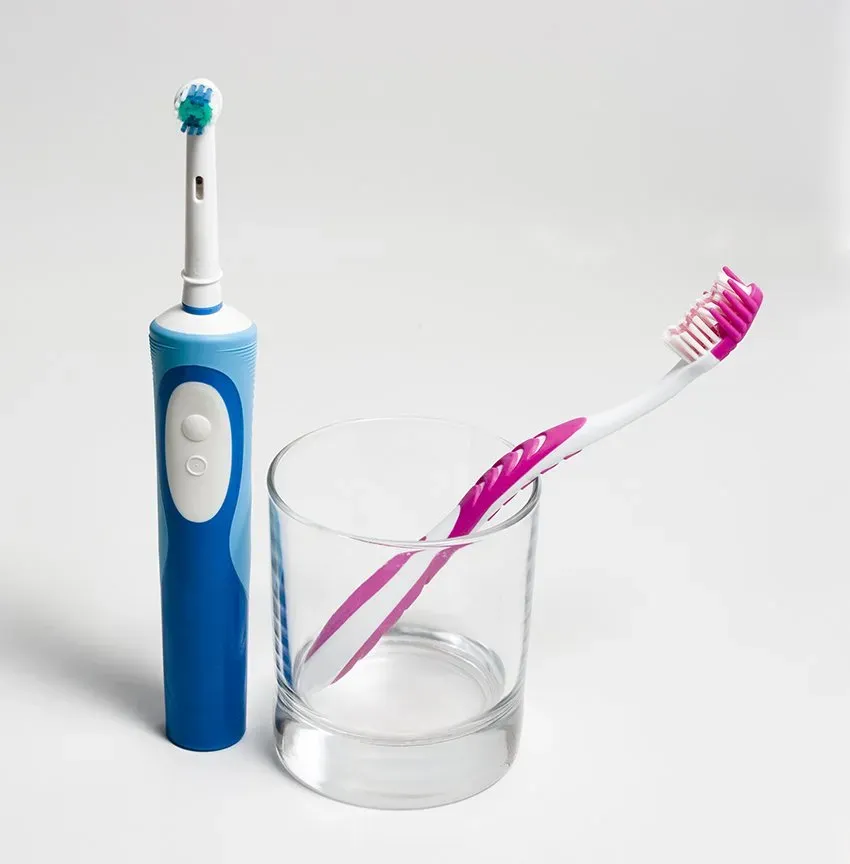Traditional Floss and Brushes Versus Water Flossers and Electric Brushes

While you already know brushing and flossing is important for a healthy, happy smile, you may be confused about which tools are the best. Many patients choose manual floss and brushes, but are they just as good as electric brushes and water flossers? If you want to know more so you can take better care of your teeth, keep reading.
Traditional Floss
Traditional floss works by using small strings of plastic to rub away plaque particles along the gum line and between teeth.
One perk of traditional floss is that it comes in many varieties. If your teeth are over-crowded, you can get thin floss that makes the floss easier to glide between teeth. If you have a dental bridge, you may also need a different type of floss that has a stiff end.
If you don't like messing with floss, there are small flosser devices, which each have a bit of floss and a pick at the end.
The biggest benefit of traditional floss is the low price. First, you get some for free each time you get a dental cleaning, but even when you have to buy it yourself, it is incredibly cheap.
Water Flosser
A water flosser is a device that shoots a small but powerful stream of water to clean teeth. One perk is that it is easy to use. Some people may have a hard time manipulating traditional floss, especially if they have limited mobility from arthritis or another condition. With a water flosser, you just spray your teeth with the water, and the powerful force will help dislodge food particles.
Water flossers are also great at cleaning bacteria from below the gum line. Plus, because it's water, there is usually less irritation and bleeding. The biggest drawback to a water flosser is the price. Your dentist won't be handing them out, and to buy your own, expect to spend up to $100 or more.
Traditional Tooth Brush
Most patients choose traditional tooth brushes because of their low price. Just like floss, you can usually find a traditional tooth brush at your local pharmacy or grocery store for a few dollars. You can also choose between soft, medium, and hard bristles.
However, while you may think a harder brush would do a better job of cleaning, that isn't always the case. When using a traditional brush, many patients brush too hard. Combine that with a hard-bristled brush, and you are might destroy your enamel and hurt your gums, which may lead to gum recession.
Electric Tooth Brush
Electric tooth brushes are easy to use, which makes them great if you have a hard time maneuvering the tooth brush. In general, people who use an electric tooth brush don't brush too hard, and they don't make technique mistakes as often because they only have to do one thing: hold the brush and let it do its job.
Electric tooth brushes also have built-in timers. This is important for anyone who doesn't brush their teeth long enough, such as children.
The biggest drawback, however, is that, like a water flosser, electric tooth brushes are expensive. They can anywhere between $15 to $250, plus another $10 to $45 for a pack of new replacement heads.
Usually, as long as you do your best when you brush and floss, it doesn't matter what dental tool you use. However, if you find that you are a little lax and lazy, getting a water flosser and electric tooth brush may allow you to keep your teeth clean with less effort. If you would like more information, or if you need a checkup, contact us today at Universal Dental P.A.






